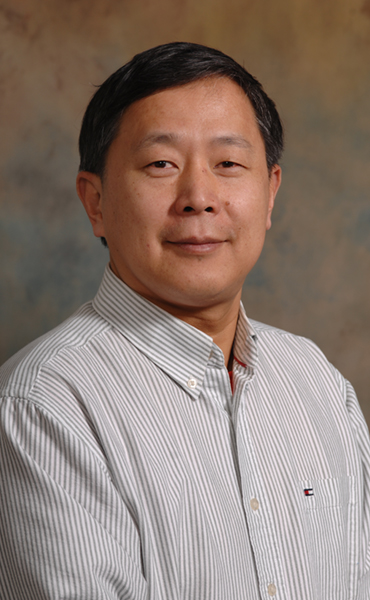
Nan-Ping Peter Weng, M.D., Ph.D.
Senior Investigator
Laboratory of Molecular Biology and Immunology
NIA
Research Topics
Age-associated changes in the adaptive immune system are complex and highly consequential for the health and wellbeing of older humans. What we have learned for the past decades are alterations of compositions of T and B cells and their functions with advance of age. However, the mechanisms underlying these age-related changes in lymphocytes are not fully understood. Our research interests are 1) to identify the key transcriptome and epigenetic changes that causes age-related reduced functions of CD8 T cells including both naïve and memory cells. We are applying the genomic and molecular techniques and methods including RNAseq, scRNAse, ATACseq and ChIPseq to analyze human and mouse T cells; 2) to determine the size of general and antigen-specific ab TCR repertoires and their changes with age. We have incorporated tetramer staining and cell sort to isolate antigen specific CD8 T cells for their repertoire and individual TCR structure and function analyses using deep sequencing and x-ray crystal structures; and 3) to elucidate the role of telomere and telomerase in regulation of lymphocyte proliferation and function in human longitudinal follow-up samples as well as genetically modified mouse models. Collectively, we hope to elucidate the mechanisms underlying age-associated changes in T cells.
Biography
Dr. Weng received his M.D. from Fudan University Shanghai Medical College (former Shanghai First Medical College), China in 1984 and Ph.D. in Immunology from Baylor College of Medicine in 1993. He obtained his postdoctoral training at National Cancer Institute, NIH. He joined the Laboratory of Immunology at NIA as a tenure-track investigator in 1997 and was tenured in 2006.
Selected Publications
- Choy C, Chen J, Li J, Gallagher DT, Lu J, Wu D, Zou A, Hemani H, Baptiste BA, Wichmann E, Yang Q, Ciffelo J, Yin R, McKelvy J, Melvin D, Wallace T, Dunn C, Nguyen C, Chia CW, Fan J, Ruffolo J, Zukley L, Shi G, Amano T, An Y, Meirelles O, Wu WW, Chou CK, Shen RF, Willis RA, Ko MSH, Liu YT, De S, Pierce BG, Ferrucci L, Egan J, Mariuzza R, Weng NP. SARS-CoV-2 infection establishes a stable and age-independent CD8(+) T cell response against a dominant nucleocapsid epitope using restricted T cell receptors. Nat Commun. 2023;14(1):6725.
- Lu J, Ahmad R, Nguyen T, Cifello J, Hemani H, Li J, Chen J, Li S, Wang J, Achour A, Chen J, Colie M, Lustig A, Dunn C, Zukley L, Chia CW, Burd I, Zhu J, Ferrucci L, Weng NP. Heterogeneity and transcriptome changes of human CD8(+) T cells across nine decades of life. Nat Commun. 2022;13(1):5128.
- Kim J, Nguyen T, Cifello J, Ahmad R, Zhang Y, Yang Q, Lee JE, Li X, Kai Y, De S, Peng W, Ge K, Weng NP. Lysine methyltransferase Kmt2d regulates naive CD8(+) T cell activation-induced survival. Front Immunol. 2022;13:1095140.
- Sun X, Nguyen T, Achour A, Ko A, Cifello J, Ling C, Sharma J, Hiroi T, Zhang Y, Chia CW, Wood W 3rd, Wu WW, Zukley L, Phue JN, Becker KG, Shen RF, Ferrucci L, Weng NP. Longitudinal analysis reveals age-related changes in the T cell receptor repertoire of human T cell subsets. J Clin Invest. 2022;132(17).
- Yang Q, Patrick M, Lu J, Chen J, Zhang Y, Hemani H, Lehrmann E, De S, Weng NP. Homeodomain-only protein suppresses proliferation and contributes to differentiation- and age-related reduced CD8(+) T cell expansion. Front Immunol. 2024;15:1360229.
Related Scientific Focus Areas




Microbiology and Infectious Diseases
View additional Principal Investigators in Microbiology and Infectious Diseases

This page was last updated on Tuesday, July 29, 2025